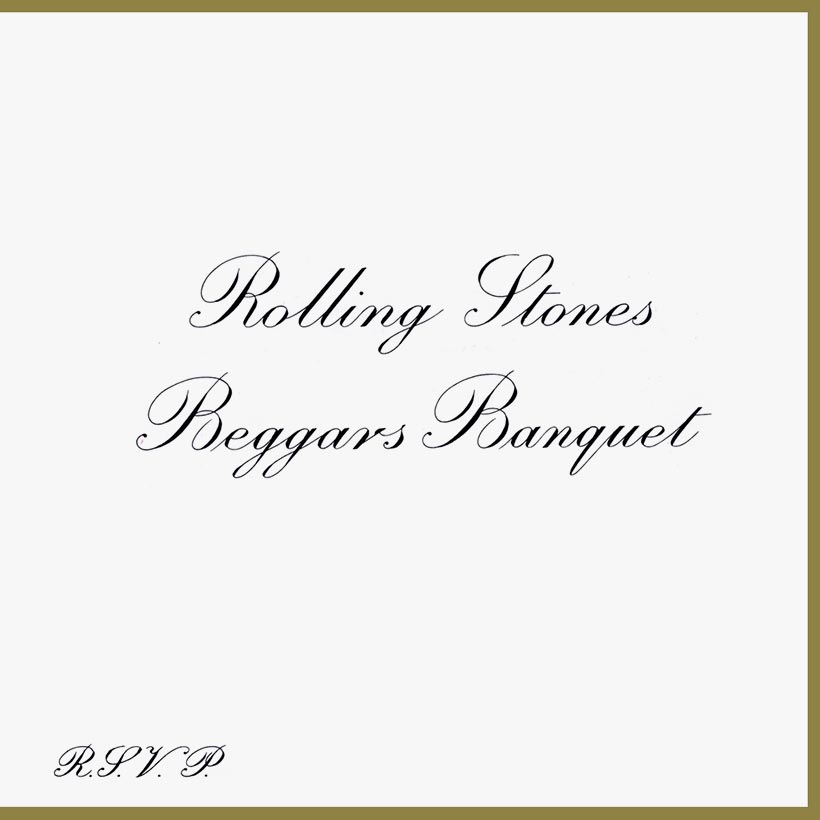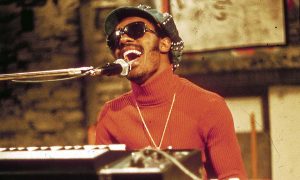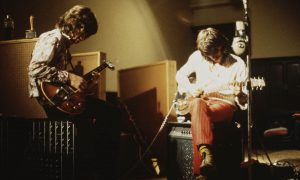The Rolling Stones remain rightly proud of their album Beggars Banquet, which marked a return to their more classic sound after the previous psychedelic experimentation of Their Satanic Majesties Request.
The band have said that Beggars Banquet “changed everything for The Rolling Stones,” describing it on their official website as the album that showed them reaching “their musical manhood.”
Listen to Beggars Banquet on Apple Music and Spotify.
The album’s famous opening track, “Sympathy For The Devil,” was written at a time when Mick Jagger had been reading about the occult. He and Keith Richards – who jointly composed nine of the ten tracks on Beggars Banquet – initially gave the song the less shocking working title of “The Devil Is My Name.” In their powerful lyrics, the Stones imagine Satan’s appearances at crucial moments in history, and there are references to the crucifixion of Christ, the Russian Revolution, World War II, and JFK’s assassination. Musically, the song is also memorable for the piano work of master session man Nicky Hopkins.
There are also lots of brilliant guitar solos by Richards, who said that, at the time, his discovery of open five-string tuning for the recording sessions – which took place between March and July 1968, at Olympic Sound Studios, in London, and Sunset Sound, in Los Angeles – helped him improve the way he played. Richards recalled, “The tuning really reinvigorated me, it transformed my life. I had hit a kind of buffer. I just really thought I was not getting anywhere from straight concert tuning.” Richards would use the technique on later Stones hits such as “Jumpin’ Jack Flash” and “Start Me Up.”
Interesting guest musicians are scattered throughout Beggars Banquet. Joining Stones regulars Jagger, Richards, Bill Wyman (bass), Charlie Watts (drums) and Brian Jones (guitars) were Dave Mason of Traffic, who played the Shehnai woodwind instrument on “Street Fighting Man.” The talented young guitarist Ry Cooder played mandolin on “Factory Girl,” though he was uncredited at the time.
A core bluesy feel runs through Beggars Banquet, from the Robert Johnson-inspired “No Expectations” to the murky two-minute gem “Parachute Woman,” which was recorded on a cassette player and double-tracked for effect, and which features some moody harmonica from Jagger. The seedy “Stray Cat Blues,” featuring Rocky Dijon on congas, has the hallmarks of the energetic production of former drummer Jimmy Miller.
The only song not written by Jagger and Richards was “Prodigal Son,” which had been composed by Mississippi bluesman Reverend Robert Wilkins back in 1929. Happily, Wilkins was 72 at the time the Stones paid their tribute and he enjoyed a boost from the royalties that helped fund his work as a religious minister.
Another notable aspect of the album was the portraits that the band commissioned from photographer Michael Joseph to go in the gatefold artwork. The photos, which evoke the work of Old Masters such as Hieronymus Bosch and Pieter Bruegel, showed the group dressed in outlandish clothes that seemed to blend Swinging 60s London with Dickensian rascals. It is no surprise that Time magazine’s review of Beggars Banquet, which was released on Decca Records on December 6, 1968, described the Stones as “England’s most subversive roisterers since Fagin’s gang in Oliver Twist.”
There is, however, a poignancy to the album. Though it marked the start of a period of musical creativity and excellence for The Rolling Stones, Beggars Banquet also saw the last album appearance of founder and original leader Brian Jones, who drowned seven months after the album’s release, at the age of 27.
If it’s to be remembered as Jones’ final contribution, Beggars Banquet is also, in all aspects, an excellent album of bluesy rock at its potent best.




